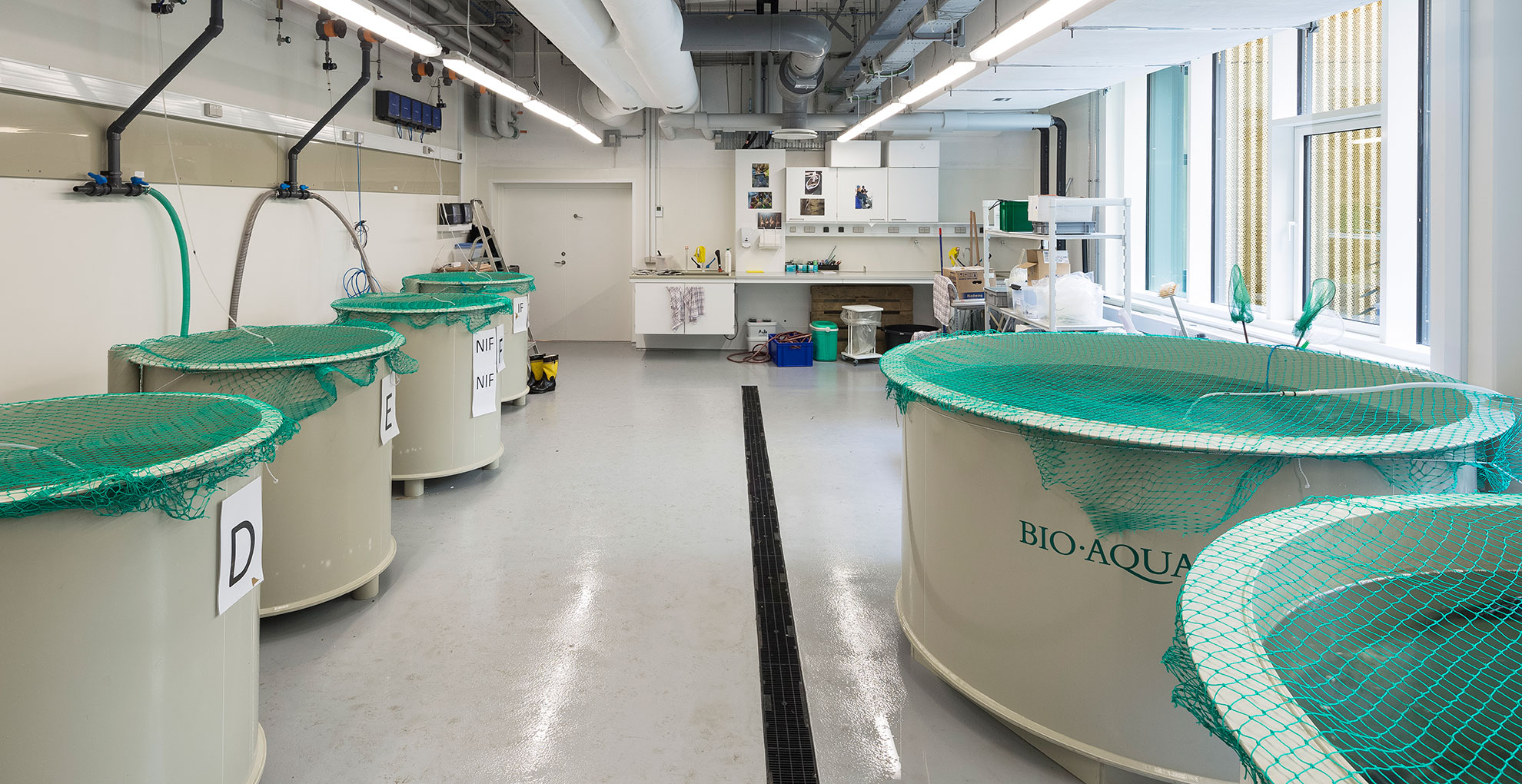Facilities for fish, plankton and otolith research, Lyngby
DTU Aqua has facilities for experimental work with fish and other aquatic animals, including plankton. Additionally, the institute has laboratories for analyzing samples from fish stock monitoring as well as specific facilities for studying otoliths.

Facilities for experimental work with aquatic animals
At DTU Lyngby Campus, DTU Aqua has recirculated aquaculture system (RAS) facilities for freshwater and saltwater experimental work with aquatic animals, with the main focus on fish biology.
The system is automated and alarm-controlled both regarding water flow, salinity, oxygen levels, and temperature. The water supply is from reservoir tanks, where drum filters, protein skimmers, biofilters and UV light ensure continuously high water quality. In the experimental facilities, temperature, salinity, and oxygen and light levels can be controlled, depending on the purpose of the experiment and the species in question.
The facilities contain state-of-the-art equipment for quantifying physiological and behavioural responses of fishes (and other organisms e.g. jellyfish, mussels, crabs etc.) to the ambient environment, or internal drivers such as e.g. parasites. This includes respirometry systems to measure effects of e.g. temperature, salinity and oxygen levels on metabolic rates for various life stages – egg to adult – and shuttle box systems for investigating preference/avoidance in relation to factors in the environment, in addition to arenas for monitoring various behaviours, for example related to personality traits.
Plankton laboratories
DTU Aqua has state-of-the art facilities on DTU Lyngby Campus, for experimental work with living plankton organisms.The laboratories have running seawater, three walk-in-cold rooms and facilities to culture and maintain various smaller organisms (phyto- and zooplankton). The lab maintains a relatively large collection of both phyto- and zooplankton in cultures.
The labs are well equipped with the most standard equipment that can be expected in modern experimental labs, such as many good stereomicroscopes, inverted microscopes, coulter counter and C/N analyzer. In addition, the laboratories have a specific videolab, with the possibility of filming 3D- and high-speed videos of plankton behaviour.
Otolith laboratories
DTU Aquas facilities on DTU Lyngby Campus include laboratories used for analyzing samples from monitoring of fish stocks, and specialized equipment and instruments for the preparation of hard body parts such as otoliths from fish, bivalve shells and corals, including microscopes, stereomicroscopes and image analysis systems for i.e. age estimation and detection of fluorescence.